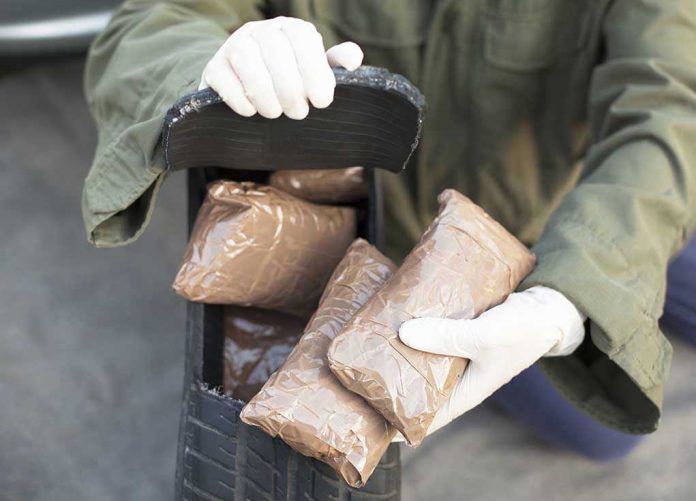
A U.S. military strike against a Venezuelan drug cartel boat in the Caribbean Sea reignites debates on border security and national defense.
Story Snapshot
- The U.S. military conducted a strike on a suspected drug-smuggling boat operated by Tren de Aragua in the Caribbean Sea, resulting in six casualties.
- This marks a significant escalation in the U.S.’s counter-narcotics policy, treating drug cartels as terrorist entities.
- The strike was the first publicly acknowledged U.S. military action in Central/South America since 1989.
- The Trump administration has declared a “non-international armed conflict” with drug cartels.
Escalation in Counter-Narcotics Policy
On September 1, 2025, a U.S. military operation targeted a speedboat in the Caribbean Sea, allegedly operated by the Venezuelan criminal group Tren de Aragua. This action resulted in the deaths of six individuals and was part of an ongoing effort by the U.S. to curb the influence and operations of transnational drug trafficking organizations. The Trump administration has increasingly characterized these cartels as narco-terrorists, justifying the use of military force to combat them.
The operation marks a shift in U.S. policy, as it is the first publicly acknowledged military strike in Central or South America since the 1989 Panama invasion. The U.S. military utilized advanced assets, such as helicopters or MQ-9 Reaper drones, to conduct the interdiction, highlighting a new level of engagement against these criminal organizations. This decisive action underscores the administration’s commitment to treating drug cartels as unlawful combatants.
Impact on U.S.-Venezuela Relations
The targeting of Tren de Aragua, a powerful Venezuelan criminal organization, has significant implications for U.S.-Venezuela relations. The U.S. government, led by President Trump and Secretary of State Marco Rubio, has been motivated by national security concerns and a desire to curb drug trafficking. The strike not only disrupts the logistics of the Tren de Aragua but also sends a clear message to other criminal groups operating in the region.
However, this military action has also led to tensions with Venezuelan communities and the government. Residents of affected areas mourn the losses and face increased instability due to the ongoing conflict. The Venezuelan government, while not directly involved, is under pressure as the U.S. asserts its military dominance in the region.
Long-term Implications
The U.S. military’s presence in the Caribbean has been bolstered, with a declaration of a “non-international armed conflict” against drug cartels. This could lead to further escalations and potentially broader military engagements in the region. While the immediate disruption to drug trafficking routes is evident, the long-term effects on regional security, U.S.-Venezuela diplomatic relations, and cartel strategies remain uncertain.
Economically, this militarized approach to drug trafficking could alter cartel behaviors and trafficking patterns, potentially leading to more clandestine operations. Politically, the strike could serve as a precedent for future military actions, reinforcing the U.S.’s tough stance against organized crime in the hemisphere.
As the U.S. continues to engage in this heightened military strategy, the question remains whether this approach will lead to lasting stability and security or further entrench the challenges posed by powerful drug cartels.
Sources:
U.S. Says 6 Killed in Strike on Boat in Caribbean Sea Operated by Tren de Aragua











